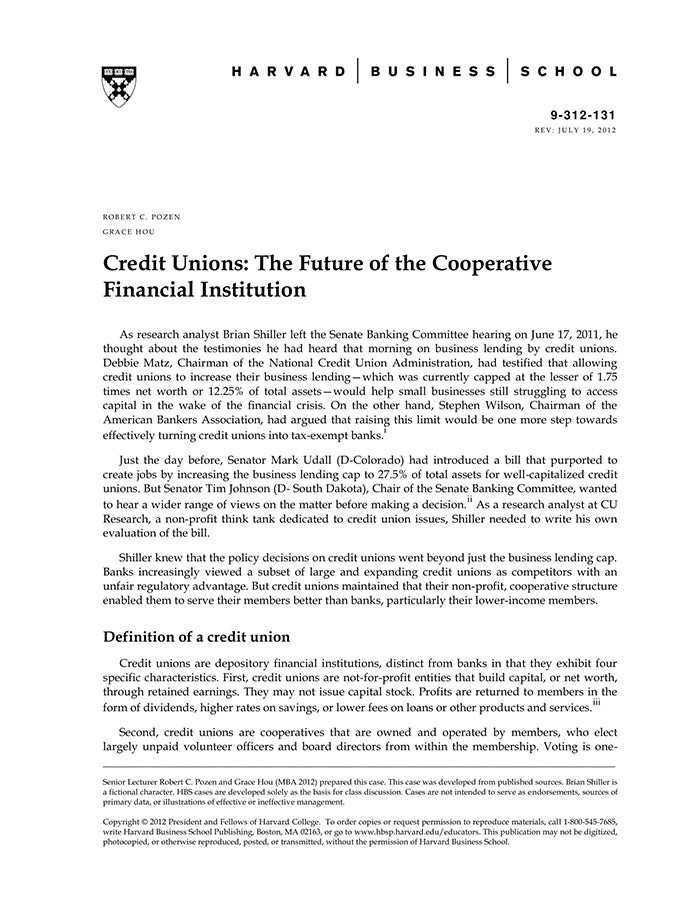Credit Unions: The Future of the Cooperative Financial Institution
受取状況を読み込めませんでした
Credit unions are a specialized type of depository institution with a cooperative, non-profit structure and a federal tax exemption. They originated as small, cooperative institutions with an emphasis on uncollateralized consumer lending to the unbanked working-classes. Over time, credit unions have evolved into a wide range of sizes, though compared to banks, a much higher proportion of credit unions are still very small. One subset of "non-traditional" credit unions have been able to expand as a result of looser field of membership requirements and expanded product and service offerings through the use of corporate credit unions and Credit Union Service Organizations. This case looks at the regulatory proposals around credit unions coming out of the financial crisis from the policy-making perspective. Credit unions have lobbied policymakers for expanded powers that will enable them to help stimulate the economy and create jobs by serving more customers and extending more credit. These expanded powers include increasing the business lending cap and raising secondary capital from non-members. The protagonist is a research analyst who must evaluate the benefits of credit unions against the costs, including the federal tax exemption. He also must consider the policy objectives of credit unions against alternative ways to achieve those objectives.
【書誌情報】
ページ数:22ページ
サイズ:A4
商品番号:HBSP-312131
発行日:2012/5/9
登録日:2012/8/21


